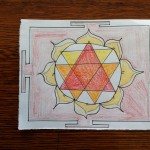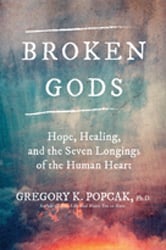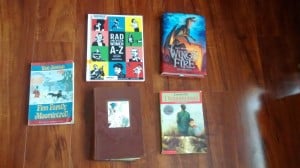I have been reading a ton lately. I have a few recommendations and one to avoid.
The first is Queen of the Night: The Celtic Moon Goddess in Our Lives by Sharynne MacLeod Nicmhacha. I thought this was an interesting book, well researched and good for those knowledgeable in the field, as well as novices, and suitable for Pagans or Celtophiles alike. The book is extensively footnoted and felt like something in between a master’s thesis and a doctoral dissertation. Don’t let that put you off! That’s a good thing. Nicmhacha has a strong grasp of her audience as well, so she creates multiple points of entry to the topic. Having said that, (spoiler alert) there’s not much in the way of a Celtic moon goddess. I wish the title had been something different. Recommended for those who love the Celtic world or want to learn more about Celtic goddess stuff and adding it to one’s life.
The next book I recommend is The Book of English Magic by Philip Carr-Gomm and Richard Heygate. This book was not at all what I was expecting! I was expecting something more like a grimoire or a how-to book. Instead, we are given an overview of English (as opposed to Scottish, Welsh, Irish, etc) magic. I have heard a saying that Wicca is the only religion that England has ever given the world, but England has given us a complex tradition of magic beyond the richness of Wicca . This book was fun. It’s a great overview for some one who has a strong background in the area or a great introduction for the person who doesn’t know where to begin. Covering Druids, Anglo-Saxons, cunning folk, alchemy, Crowley and Wicca, using biography, interviews, and a few how-to’s, the reader gets a sense of the sweeping scope of magic in the English story and sees just how diverse is the magical world view. For those addicted to books, there are even short book lists of novels about each era and style of magic. I have added several of the recommendations to my own personal reading list.
The last book I want to review is Raven Grimassi’s latest book, Old World Witchcraft: Ancient Ways for Modern Days. I had not ever read any of Grimassi’s books before, but I had filed them away under fluff in my head. A few years ago I heard him speak at Pantheacon and I remember thinking he might be more interesting than I had previously given him credit. I had read a good review or two about this, his most recent book, so I thought I’d give it a try.
Oh my. It’s just awful.
A basic problem is weak writing, but that’s not what bothers me the most. His scholarship is weak to the point of embarrassing and then he goes and makes up a traditional witchcraft tradition (not a big deal if you consider it all made up anyway, but I don’t). Grimassi uses some standard texts on the subject, but his bibliography is far, far from exhaustive and not at all long enough to support 100 pages on the topic. He uses his chosen texts to explore the myth of the witch, pulling from the texts things that witches seem to have in common that might be true and looking at what is patently fiction. However, Grimassi seems to think that modern academics actually think that witches are just like what is described in medieval texts. I have taken a class, at the undergraduate level, on witchcraft in the Middle Ages, and I’ve done some research on the subject at the graduate level.* Never has it come up in class, discussion or in my reading that modern scholars actually assume that witches are now or were then what their accusers made them out to be. No one now assumes that medieval texts are accurate depictions of witchcraft. Since Grimassi footnotes nothing I cannot figure out which sources he takes issue with. What’s embarrassing is that he writes as if no one has ever considered these ideas before, that no one has questioned academic ideas of witchcraft before. If he’d done more and/or better research he’d find that nothing he says is new here, or all that accurate! That witches didn’t actually worship the Devil, that accusations of such were merely theological propaganda is not a new idea!
At one point Grimassi tells us of a new mural recently uncovered in Italy, depicting a tree with hanging penises and women dancing around the tree. The mural is dated from the 13th century and is considered to be the earliest depiction of witches. There is no Devil figure present so Grimassi has the audacity to suggest that “[t]his demonstrates that such concepts were not part of the depiction of the witches’ gathering during this period.” (pg. 39) You cannot make that claim based on one mural.
If I was grading the first two chapters of this book at an undergraduate level I would have to hand them back and tell him to rework them. The scholar in me was insulted by the first half of the book. For this alone I will avoid Grimassi in the future and steer people away from his work.**
The second complaint is that he has gone ahead and created Ash, Birch and Willow, a traditional witchcraft system. This isn’t offensive, but seems like a ridiculous idea given that there are many (I can name five off the top of my head) actually existing traditional witchcraft systems that have been around for more than a generation, several claiming roots back at least several generations. He never mentions these groups. Why in the world go and create another one? And why not discuss the currently existing groups? Leaving them out entirely hardly seems like a thorough discussion of the subject.
In summary, the first two books are recommended if they might hit your interests; the third book is to be avoided at all costs.
*I wrote an unpublished paper looking at accusations of witchcraft and homosexuality. Take-away knowledge: while most of those accused of being witches were also accused of homosexual acts, those who were brought up on charges of homosexual acts were not accused of witchcraft; the two were not conflated.
**I give Grimassi perhaps a fraction of a point for using one of my favorite obscure scholarly sources, Stephen Benko’s The Virgin Goddess: Studies in the Pagan and Christian Roots of Mariology. If some one wants to gift me with a copy of this work this holiday season, I would squeal with glee.











